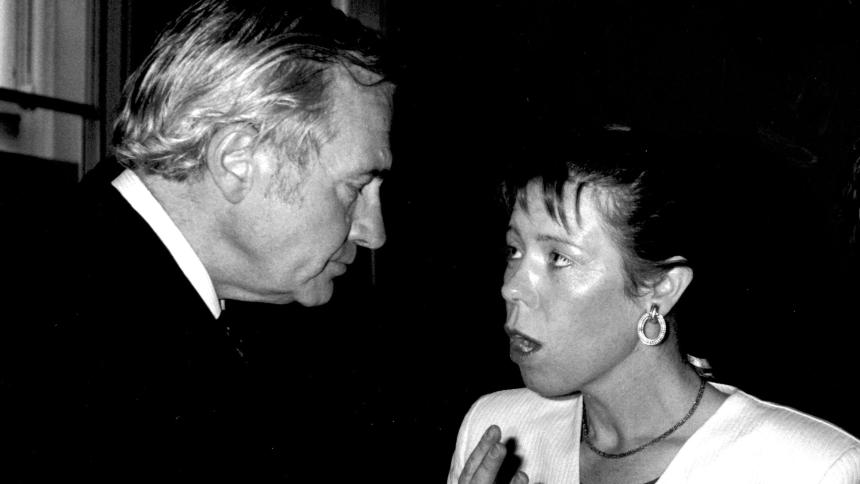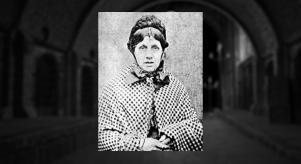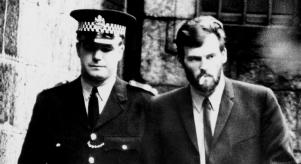
John Stonehouse: The MP who spied on his government and faked his own death
At one point in time, John Stonehouse believed he could be the Prime Minister of the United Kingdom. During the height of his career, he was a Labour MP and a cabinet minister. In the 1970s, however, Stonehouse’s meteoric downfall was set in motion after he was discovered using deceptive creative accounting. His fall from grace culminated in 1974 when he faked his own death.
John Stonehouse always had two ambitions in his life: to be rich and to become Prime Minister. He was first elected to the House of Commons as MP for the Wednesbury constituency in 1957, becoming the Labour party’s youngest MP. He had previously contested Twickenham in 1950 and Burton in 1951. He quickly climbed the ministerial ladder and served in several high-profile posts, including Aviation Minister during which he piloted the controversial F-111 at 1,000mph for 20 minutes.
Stonehouse was then elected as Postmaster General in 1968. At the time, the Post Office was hit with an avalanche of complaints about the two-tier post, poor telephone service and increased telephone charges. That same year, the Birmingham Evening Mail questioned whether he was ‘Britain’s most unpopular Minister’. He had also overseen the controversial jamming of offshore radio station Radio North Sea International.
The following year, Stonehouse was accused of serving as a spy for Czechoslovakia. He staunchly denied the accusations and it wasn’t until 2009 that these allegations were substantiated by Christopher Andrew, author of The Defence of the Realm. Stonehouse had spied for them at the House of Commons for at least twelve years and received £5,000, the equivalent of £70,000 today. It was eventually revealed that Margaret Thatcher’s government was presented with the evidence against Stonehouse but the matter was hushed up.
Following the scandal, Stonehouse was ousted from the shadow cabinet. When Harold Wilson had drawn up his Shadow Cabinet to take on the Tories, Stonehouse was left out. Since he was relegated to the back benches, Stonehouse set up a handful of import/export businesses to subsidise his income. By 1974, these were all reported to be in financial turmoil. That same year, he was elected as MP for Walsall North.
In an attempt to escape his financial woes, Stonehouse resorted to creative accounting, but the Department of Trade and Industry launched an investigation. They had learned that an unsuccessful attempt to float a company on the stock market had caused Stonehouse to use his own businesses to buy shares in an attempt to falsely inflate the prices.
By now, Stonehouse had debts of more than £800,000, and he decided that the only way to get out of facing his problems was to fake his own death.
In November 1974, Stonehouse booked a room at the Fontainebleau Hotel in Miami, Florida. On the afternoon of 20th November, he told a business colleague that he was going for a swim. He stopped by the beach cabana and deposited his clothing with the attendant. Stonehouse never retrieved his clothing, giving the impression that he had drowned in the ocean. Inside his hotel room, he had left behind his briefcase, check books, more than $800 in cash and traveller’s checks, his driver’s license and credit cards.
As Miami police scanned the shores, they were unaware that Stonehouse had in fact left the area along the coast and changed into dry clothing he had strategically left at another hotel. He then headed to Australia using a fake alias he had stolen from the dead husband of one of his constituents. Stonehouse had anticipated a quiet life with Sheila Buckley, his mistress and secretary. He envisioned that after one day of media attention, the world would forget about him and his untimely death. He thought wrong. Immediately, the media speculated that something suspicious was afoot, and the story was pursued relentlessly.
Stonehouse’s family all contended that he was a strong swimmer, leading to the police in Miami growing suspicious. These suspicions were further aroused as the days continued to pass and no body washed ashore. Lt. Jack Webb, who was in charge of the investigation, repeatedly said that he did not believe that he had drowned, that he had somehow vanished.
As the mystery deepened over in the United Kingdom, over in Australia, Stonehouse was using fake names to transfer large amounts of money between different bank accounts. These bank accounts had been set up with the identities of two of his dead constituents. One bank teller became wary of his behaviour and immediately contacted the police. At first, police speculated that Stonehouse was actually Lord Lucan, who had vanished after allegedly killing his children’s nanny. He was placed under surveillance before being arrested on 24th December. When police discovered his true identity, six months of legal wrangling ensued before Stonehouse was eventually returned to Britain.
He was charged with fraud but despite his charges, he still held on to the title of MP. There was no procedure for expelling him and he refused to resign. As his trial was fast approaching, he delivered the following statement in the Commons: ‘I assumed a new parallel personality that took over from me, which was foreign to me and which despised the humbug and shame of the past years of my public life.’
In June 1976, Stonehouse stood trial on charges of fraud, deception and theft. Since he couldn’t afford a solicitor, he served as his own defence attorney. The trial lasted 68 days and ultimately, Stonehouse was found guilty and ordered to serve seven years in prison. Following his conviction, he finally stood down as MP.
In August 1979, Stonehouse was released from prison on good behaviour and because of his ailing health. While behind bars, he had suffered three heart attacks and had undergone open heart surgery. He re-invented himself as a crime writer and even served as a volunteer fundraiser for the charity, Community Links. He passed away on 14th April 1988, at 62 years old.








